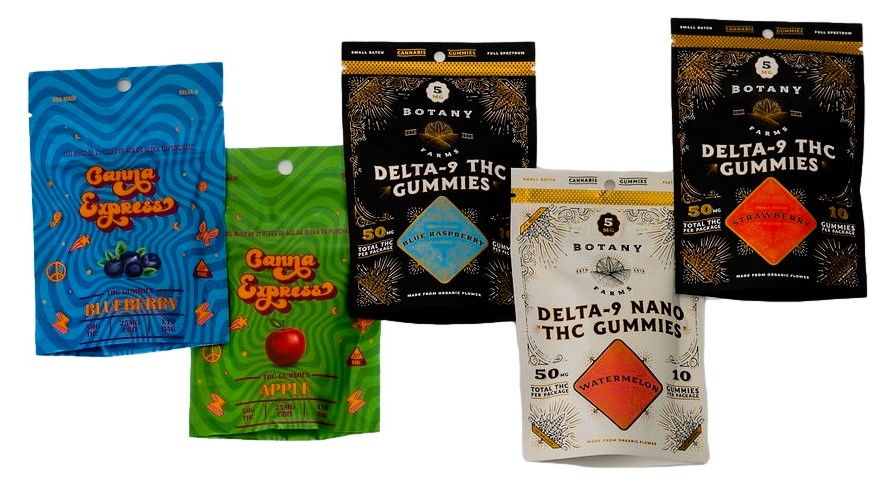Colorado cannabis packaging remains a trailblazer in cannabis regulation. The state’s detailed requirements cover everything from intended use labeling to expiration dates, guaranteeing transparency and safety. If you’re in the cannabis business, here’s your essential guide to staying compliant with Colorado’s Department of Revenue Marijuana Enforcement Division (MED) regulations.
1. Applicability of the Rules
These packaging and labeling rules apply to all Regulated Marijuana, Regulated Marijuana Concentrate, and Regulated Marijuana Products (excluding seeds and immature plants) before transferring to patients or consumers. Whether inhaled, consumed orally, or applied topically, these products must meet the standards outlined in Rule 3-1015 and supplementary requirements from Rule 3-1010.
Exemption: Retail Marijuana Hospitality and Sales Businesses following Rule 3-1020 packaging and labeling standards are exempt.
2. Labeling Requirements
All containers and marketing layers for Regulated Marijuana must include:
- Statement of Intended Use: Clearly indicate the intended use of the product, chosen from specific categories such as:
- Inhaled Products: Includes flower, pre-rolls, concentrates, and vaporizer devices.
- Oral Consumption: Covers edibles, tinctures, capsules, and infused drinks.
- Skin and Body Products: Includes topicals and transdermals.
- Audited Products: Such as metered-dose nasal sprays or rectal/vaginal applications.
- Potency Statements:
- For inhaled products: Total THC and CBD percentages.
- For edibles: Milligrams of active THC and CBD per serving and per container.
- For topical/transdermal products: Milligrams of THC and CBD per container or product.
- Use-By Date: Indicates freshness and safety, not exceeding nine months from production unless stability testing allows longer. Once set, use-by dates cannot be altered.
3. Special Labeling for Specific Products
Inhaled Products:
- Labels must state whether the product is for smoking, vaporizing, or other inhalation methods.
- If THC or CBD levels are under one milligram, potency can be listed as “<1 mg.”
Edible Products:
- Include a warning: “The intoxicating effects of this product may be delayed by up to 4 hours.”
- Add production and refrigeration statements, if applicable.
Topicals and Transdermals:
- Potency must reflect milligrams of THC and CBD per product.
- Expiration dates must be included and strictly adhered to.
Audited and Alternative Use Products:
- Additional rules apply for specialized products like nasal sprays or rectal/vaginal administration methods.

4. Key Rules for Compliance
- Decontaminated Products: Starting July 1, 2025, containers for decontaminated marijuana (due to failed test results) must carry specific Division-established labels.
- Multiple Intended Uses: Products with more than one use must display all uses and meet the most restrictive labeling requirements.
- Prohibited Label Changes: Labels, including use-by dates, cannot be altered or replaced with extended dates.

5. Promoting Consumer Awareness
To ensure clarity and trust, labels must avoid misleading claims and clearly indicate:
- Accurate THC and CBD levels.
- Specific product uses.
- Any necessary handling instructions (e.g., refrigeration).
6. Looking Ahead: 2025 and Beyond
Colorado cannabis packaging regulations are dynamic, with updates like decontaminated product labeling coming into effect in 2025. Staying ahead of these changes is critical for your business to thrive in this competitive market.
At PAX Solutions, we understand the complexities of the Colorado cannabis packaging regulations. From designing compliant labels to crafting tamper-evident, child-resistant packaging, we are your trusted partner in navigating these rules.
Let’s work together to ensure your products stand out while meeting every compliance standard. Contact us today to elevate your cannabis packaging and labeling strategy!
Disclaimer:
The information provided in this blog is for informational purposes only and should not be considered legal advice. While we strive to provide accurate and up-to-date information, cannabis laws and regulations are subject to change. We encourage you to conduct your own research or consult with a legal professional to ensure compliance with all applicable laws and regulations. PAX Solutions is not liable for any actions taken based on the information provided in this blog.


